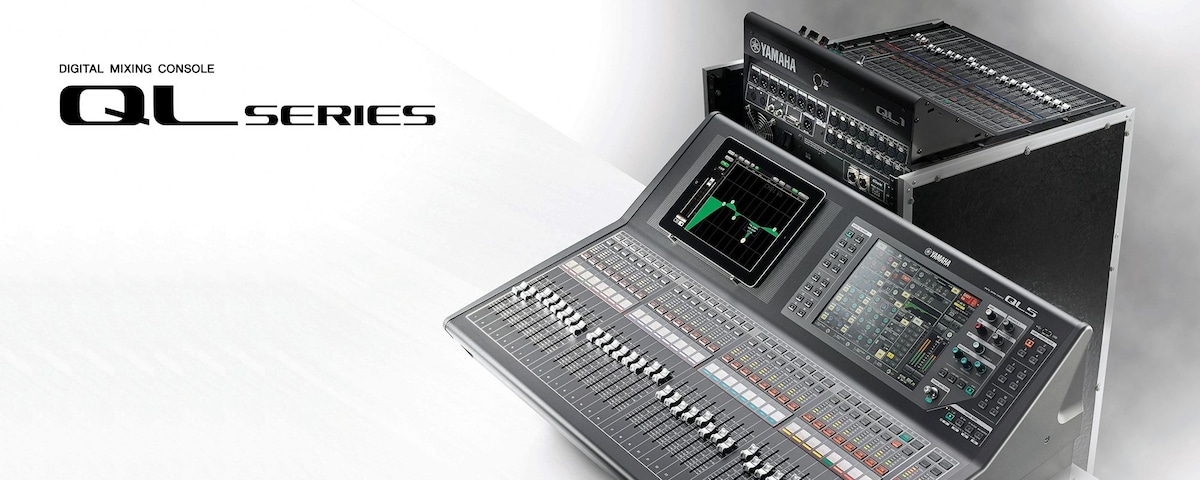QL series Tidak Dilanjutkan
Interviews
30 tahun dalam penelitian dasar dan inovasi produk. Teknologi pemodelan fisik terdepan di kelasnya mendasari kekuatan K’s Lab.
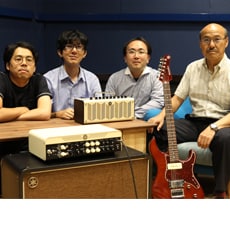
30 tahun dalam penelitian dasar dan inovasi produk. Teknologi pemodelan fisik terdepan di kelasnya mendasari kekuatan K’s Lab.
(Dari DTM STATION. Laporan oleh Ken Fujimoto.)
Kami berjumpa dengan grup riset unik, K's Lab, dalam dua artikel sebelumnya: “Bagaimana penemuan sebuah tesis di 1977 menghasilkan terobosan di divisi riset K’s Lab Yamaha 30 tahun yang lalu," dan "Desain Rupert Neve dari tahun 60-an dan 70-an yang secara realistis diciptakan kembali oleh tim peneliti K’s Lab Yamaha.” Dalam artikel ini, bagian ketiga dan terakhir dari seri K’s Lab, kita akan melihat beberapa prosesor dan amplifier gitar yang telah dibuat dengan menggunakan teknologi VCM (Virtual Circuitry Modeling) mereka.
Rupert Neve Designs from the 60s and 70s Realistically Recreated by the Yamaha K’s Lab Research Team
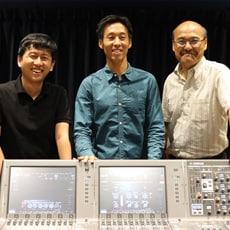
Rupert Neve Designs from the 60s and 70s Realistically Recreated by the Yamaha K’s Lab Research Team
(From DTM STATION. Report by Ken Fujimoto.)
K’s Lab has been a central research group at Yamaha for 30 years, garnering international attention for breakthroughs in physical modeling while leaving an impressive track record in product development. The K’s Lab team put their full technological weight behind the recreation of professional audio gear such as equalizers and compressors originally developed by Rupert Neve in the 60s and 70s. Readers might wonder why Yamaha chose to research products from another manufacturer. The answer lies in the undeniable fact that in many ways Mr. Neve built the foundations of the pro audio industry as we now know it, and it is with the greatest respect that the team now works with Mr. Neve to build the future.
How the discovery of a 1977 thesis led to a breakthrough at the Yamaha K’s Lab research division 30 years ago
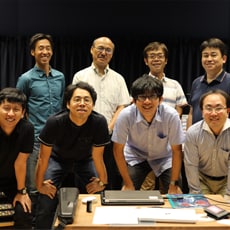
How the discovery of a 1977 thesis led to a breakthrough at the Yamaha K’s Lab research division 30 years ago
(From DTM STATION. Report by Ken Fujimoto.)
K’s Lab, led by a research fellow, Dr. Toshifumi Kunimoto, has been researching physical modeling systems for more than 30 years, and is one of the most preeminent research groups in its field. We’ll look back at how an unearthed thesis and a unique musical instrument led to the launch of K’s Lab.
Interview: Bringing Shure and Yamaha Technology Together
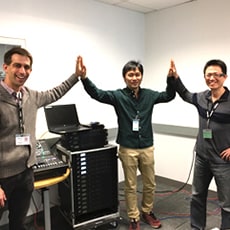
Interview: Bringing Shure and Yamaha Technology Together
The seamless integration of Yamaha’s CL/QL Series consoles with Shure’s ULX-D digital wireless systems provided the users with significantly enhanced operability. This interview explores the intimate collaboration between two companies through the eyes of each project leader in product development.
SWP1 Series Designer Interview
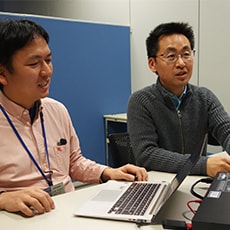
SWP1 Series Designer Interview
Digital audio networking is rapidly becoming an essential, convenience-enhancing element in live sound and other pro audio applications. Yamaha pro audio products with Dante audio networking capability, including the industry standard CL series digital mixing consoles, are leading the way. SWP1 series network switches are being introduced to take the evolution to the next level. The first Yamaha network router was introduced to the domestic market in 1995. Over the 20 years that followed, Yamaha brought IT and pro audio expertise together in some of the most innovative audio networking solutions available. In the following interview we discuss that background and some of the philosophy behind the SWP1 series network switches with key Yamaha pro audio designers.
Developer Interview: Fader Knobs Refined for Productivity and Motivation
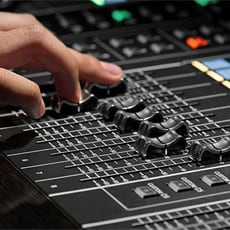
Developer Interview: Fader Knobs Refined for Productivity and Motivation
Di tengah kegembiraan dan kemeriahan acara musik live terdapat seorang mixing engineer berkepala dingin yang membuat keputusan - keputusan yang sangat penting. Vokal, gitar, bass, keyboard, drum, dan fader lainnya harus dikontrol dengan tepat untuk mencapai keseimbangan musik yang ideal. Misi Yamaha yaitu untuk mendukung engineer saat berfokus dengan penuh perhatian pada setiap momen program musik yang sedang berlangsung, ujung jari berada di fader, siap untuk melakukan perubahan genting setiap saat. Misi tersebut mengarah pada perjalanan panjang penyempurnaan pada bentuk dan dimensi hubungan paling mendasar antara mixing engineer dan konsol: tombol fader. Wawancara berikut ini mengungkapkan dalamnya pemikiran dan kepedulian untuk desain tombol fader yang berevolusi, yang diperkenalkan dalam seri konsol mixing digital CL series.
The Development of Virtual Circuitry Modeling Audio Effects
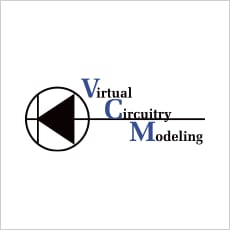
The Development of Virtual Circuitry Modeling Audio Effects
From the birth of physical modeling to Portico emulations
History
Sejarah Mixer Digital
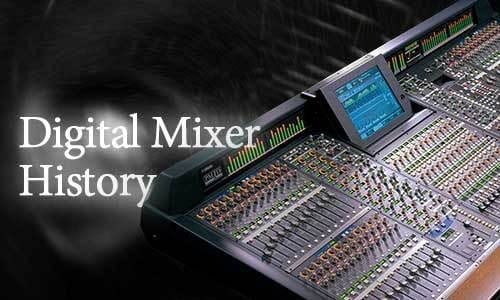
Sejarah Mixer Digital
Back when Yamaha products such as the DX7 synthesizer and SPX90 multi-effect unit were at the peak of their popularity, Yamaha was busy developing and manufacturing a DSP LSI that was originally intended for use in Electones, but which also showed promise for digital mixing applications. That LSI provided the basis for Yamaha’s first digital mixer, the DMP7.

